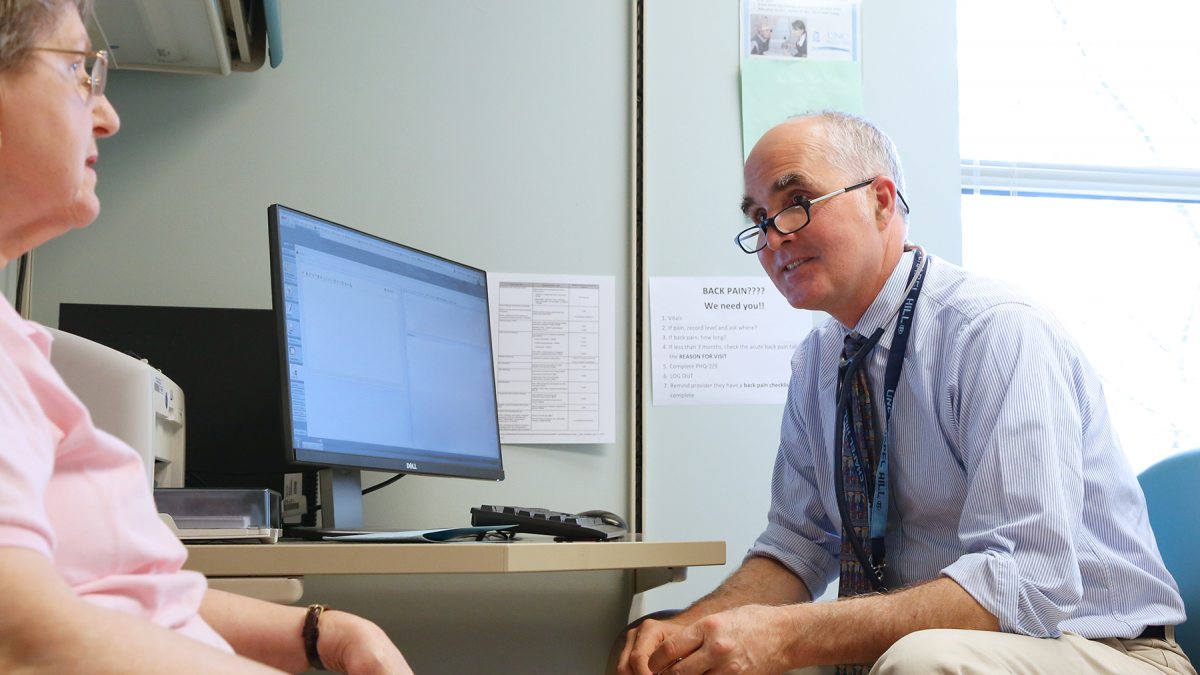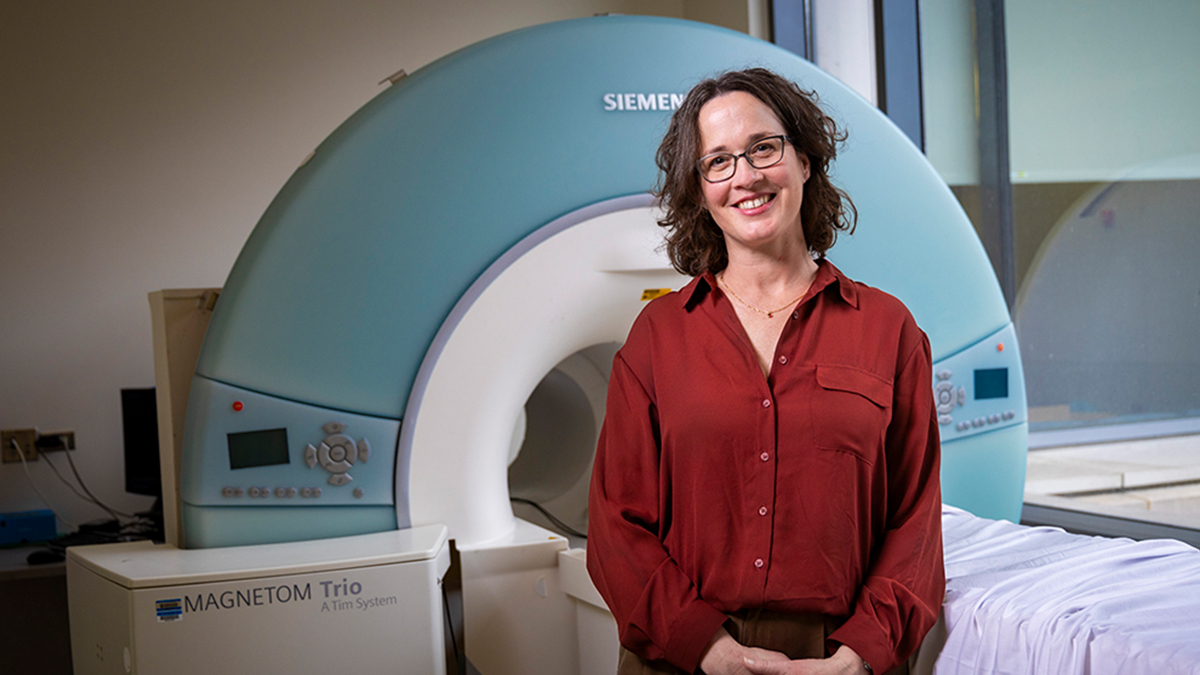Blue Cross Blue Shield invests $1.2 million to support Carolina’s Physician Assistant program
Blue Cross NC announced continued investment in the two-year Physician Assistant Studies program, led by Paul Chelminski and housed in the Department of Allied Health Sciences.

The UNC School of Medicine’s Physician Assistant Studies program will benefit from a $1.2 million investment from Blue Cross and Blue Shield of North Carolina as part of a statewide initiative to support primary care. The program, housed in the Department of Allied Health Sciences, recruits non-traditional students with special attention to North Carolina residents and veterans.
Designed in collaboration with Army officials at Fort Bragg, the program builds on former troops’ medical experience to become skilled medical practitioners. The program is committed to the health care and workforce needs of all North Carolinians, including those living in rural areas.
Dr. Paul Roman Chelminski, professor of medicine and director of the physician assistant program, said he is fortunate to work with philanthropic partners who understand that the most important ingredient in providing high-quality and compassionate health care is to recruit, support and train students capable of delivering excellence and service to the people of North Carolina. The investment will allow the physician assistant program to support both student and faculty scholarship initiatives.
“The partnership between Blue Cross NC and UNC-Chapel Hill is about the power of education, the power of service, and the power of two great institutions working to cement these values,” Chelminski said. “It’s going to allow me to engage these faculty members in very strong faculty development opportunities that exist at UNC-Chapel Hill and across the country.”
Dr. William L. Roper, CEO of UNC Health Care and dean of the UNC School of Medicine, said this initiative reflects generosity and forward thinking from Blue Cross NC.
“The entire country is dealing with a shortage of primary care physicians, particularly in rural communities,” he said. “Graduates of this program help us address the shortage as they play a vital role in today’s health care system. We owe a debt of gratitude to Blue Cross NC for their generous support of this most important initiative.”
The physician assistant program welcomed its third class of students in January 2018. James Sorrells, a veteran and native North Carolinian, is a member of that class. Sorrells said the program’s mission and vision align with what he sought in an opportunity to continue his education.
“This is the place for me,” Sorrells said. “North Carolina is where I was born. It’s where my heart is; it’s where my home is. I’m very proud to be here.”
Generous support from Blue Cross NC helped launch the program in 2012 and supported program initiatives, including student academic scholarships. Sorrells, from Rosman, North Carolina, is a Blue Cross NC scholar.
“This gift undoubtedly will promote the outstanding nature of the PA program, faculty, staff, and students. It will go a long way to improving the health care infrastructure in the state,” said Stephen Hooper, associate dean and chair of the Department of Allied Health Sciences. “I am proud to have this program in the Department of Allied Health Sciences.”
The physician assistant program uses an interprofessional approach to prepare skilled and compassionate health care providers across the continuum of life. To that end, 19 departments within four UNC-Chapel Hill professional schools, including medicine, nursing, pharmacy and public health, deliver instructional curriculum to physician assistant students. The students engage in clinical rotations at UNC Hospitals, Chatham Hospital, the Durham VA Medical Center, and Womack Army Medical Center in Fayetteville.
For all three admitted cohorts, the student body is comprised of 35 percent military-affiliated students, including veterans. Students entered the program with an average of 8,837 hours of clinical experience and with an average age of 32. Further, 21 percent of students are from medically underserved populations or areas.
This support from Blue Cross NC is part of a $50 million investment in various community organizations aimed to target community health initiatives, including primary care, social determinants of health, early childhood development, and the opioid epidemic.




